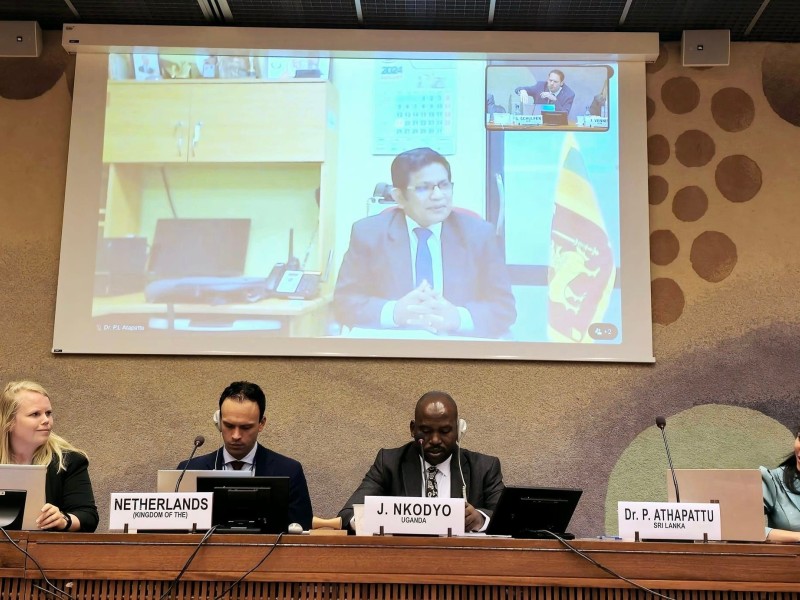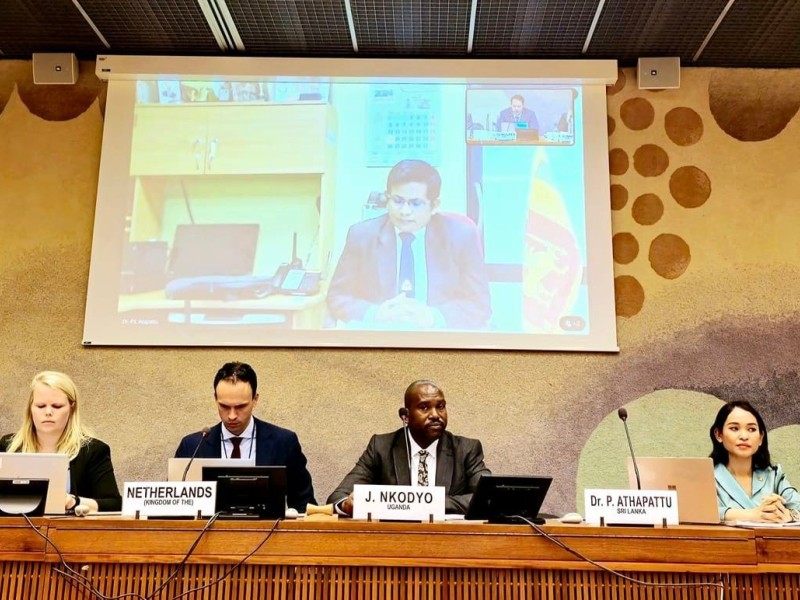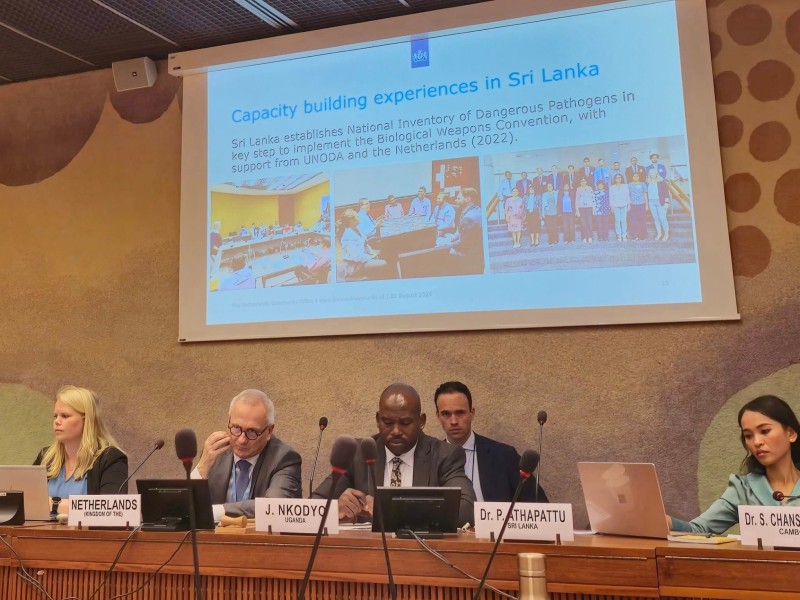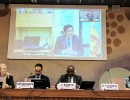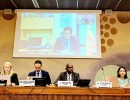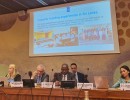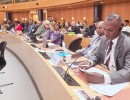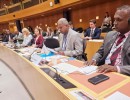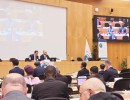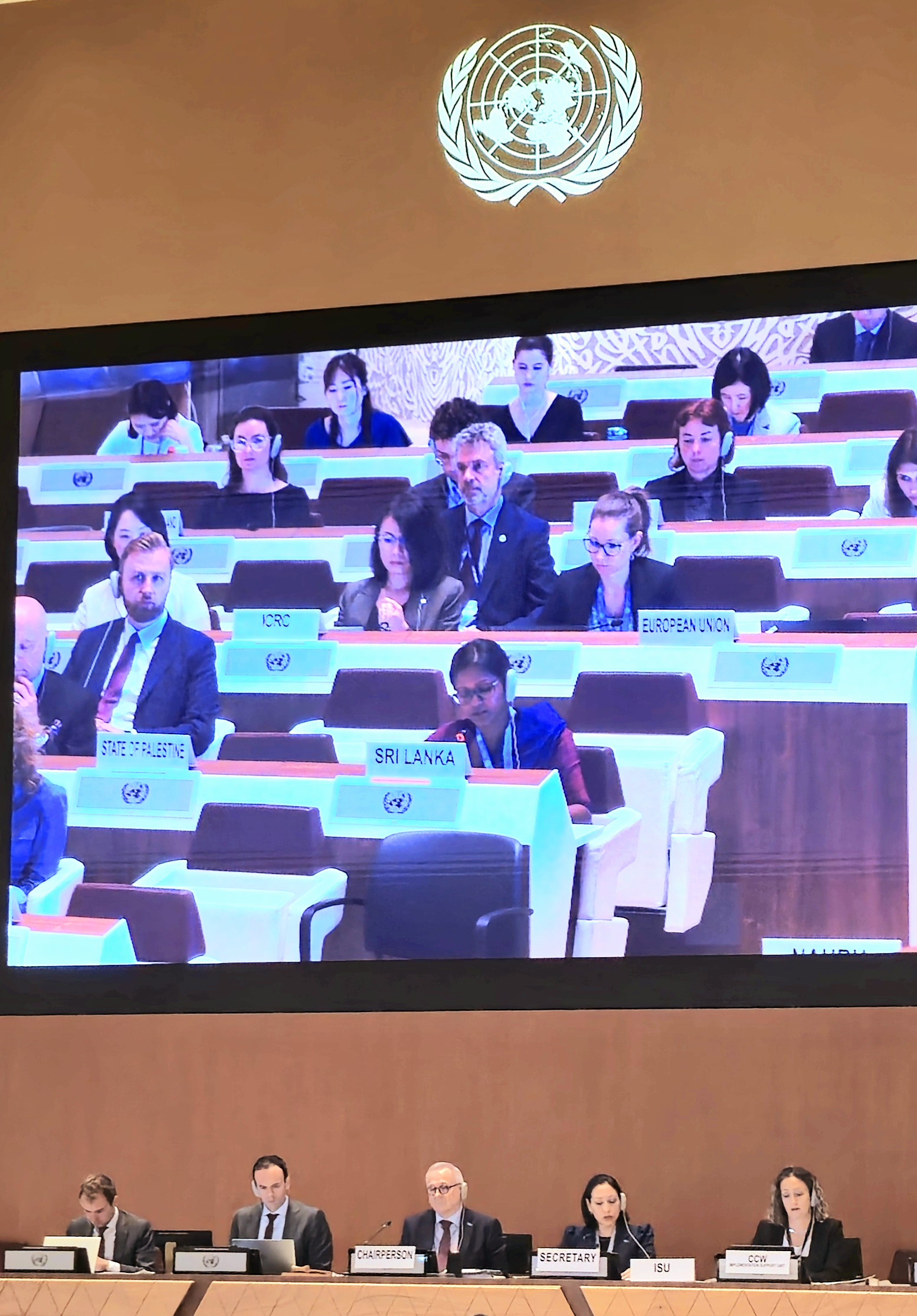
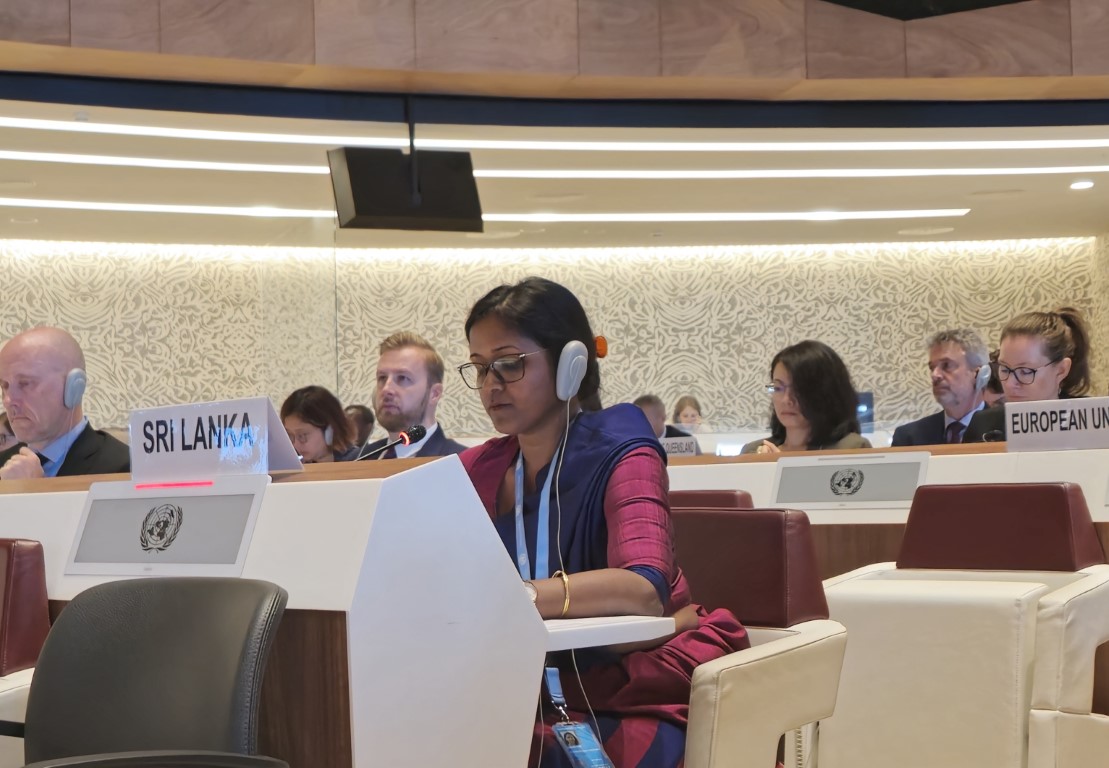
Statement by Sri Lanka
Second session of the 2024 CCW Group of Governmental Experts on Emerging Technologies in the Area of Lethal Autonomous Weapons Systems (GGE on LAWS),
26-30 August 2024
Agenda Item 5
Mr. Chair
Distinguished delegates
First, let me congratulate and express our gratitude to the Chair for the continued work in advancing the dialogue on Lethal and Autonomous Weapons Systems (LAWS) as well as for the preparatory work of the second session of the GGE on LAWS. We appreciate the ‘rolling text’ presented by the Chair on a set of elements of an instrument to facilitate the discussions of this session.
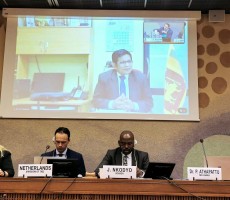
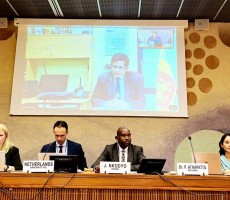
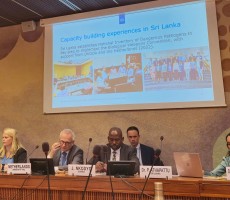
On 22 August 2024, Sri Lanka shared the lessons learned on the establishment of National Inventory of Dangerous Pathogens (NIDP) at a side event during the 4th session of the Working Group on Strengthening the Biological Weapons Convention(BWC) held in Geneva. Dr. Priyantha Athapattu, Director, Tertiary Care Services/Deputy Director General (Laboratory Services) of Ministry of Health joining the panel discussion online elaborated Sri Lanka's experience, challenges and best practices in implementing NIDP. The event was co-hosted by the Netherlands, Cambodia, Mongolia, Uganda and Sri Lanka.
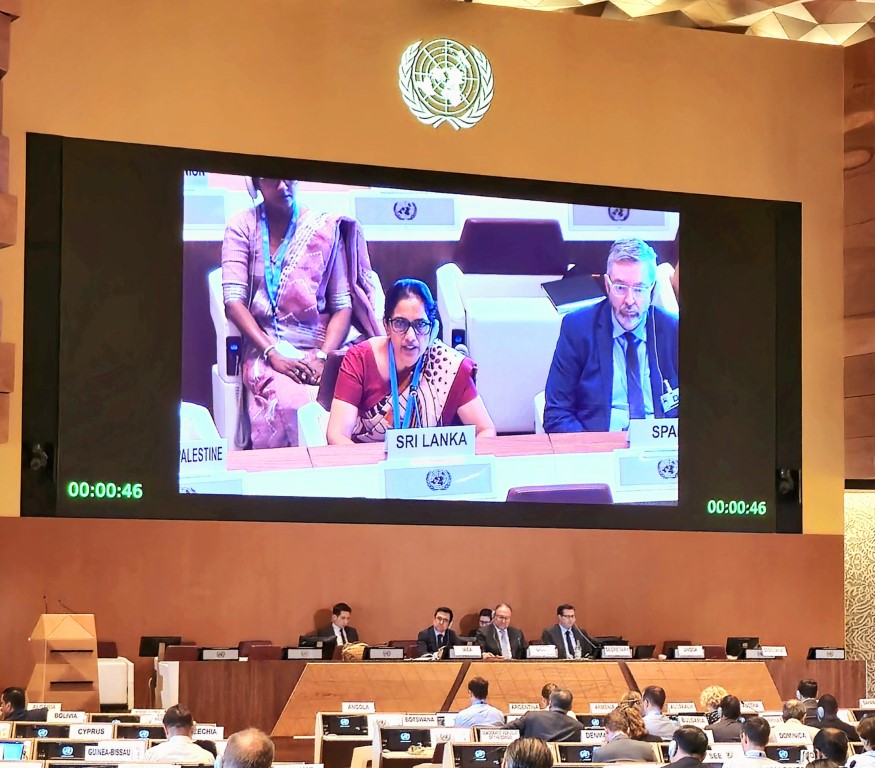
Statement by Her Excellency Himalee Arunatilaka, Ambassador and Permanent Representative of Sri Lanka to the United Nations in Geneva
at the 2nd Preparatory Committee for the 2026 Review Conference of the Parties to the Treaty on the Non-Proliferation of Nuclear Weapons, 22 July – 02 August 2024
Cluster 3 - Peaceful uses of nuclear energy – 30 July 2024
Mr. President,
Excellencies,
Distinguished delegates,
Sri Lanka is pleased to address the 2nd Preparatory Committee for the 2026 Review Conference of the Parties to the NPT under Cluster 3 and wishes to reaffirm our commitment to promote peaceful uses of nuclear energy and technology, as enshrined in Article IV of the Treaty.
Mr President, the world is at a critical juncture requiring the collective efforts of all stakeholders to address the increasing inequalities across the globe. We call on all Member States to uphold the ‘inalienable right of all the Parties to the Treaty to develop research, production and use of nuclear energy for peaceful purposes without discrimination’ as guaranteed by the NPT.
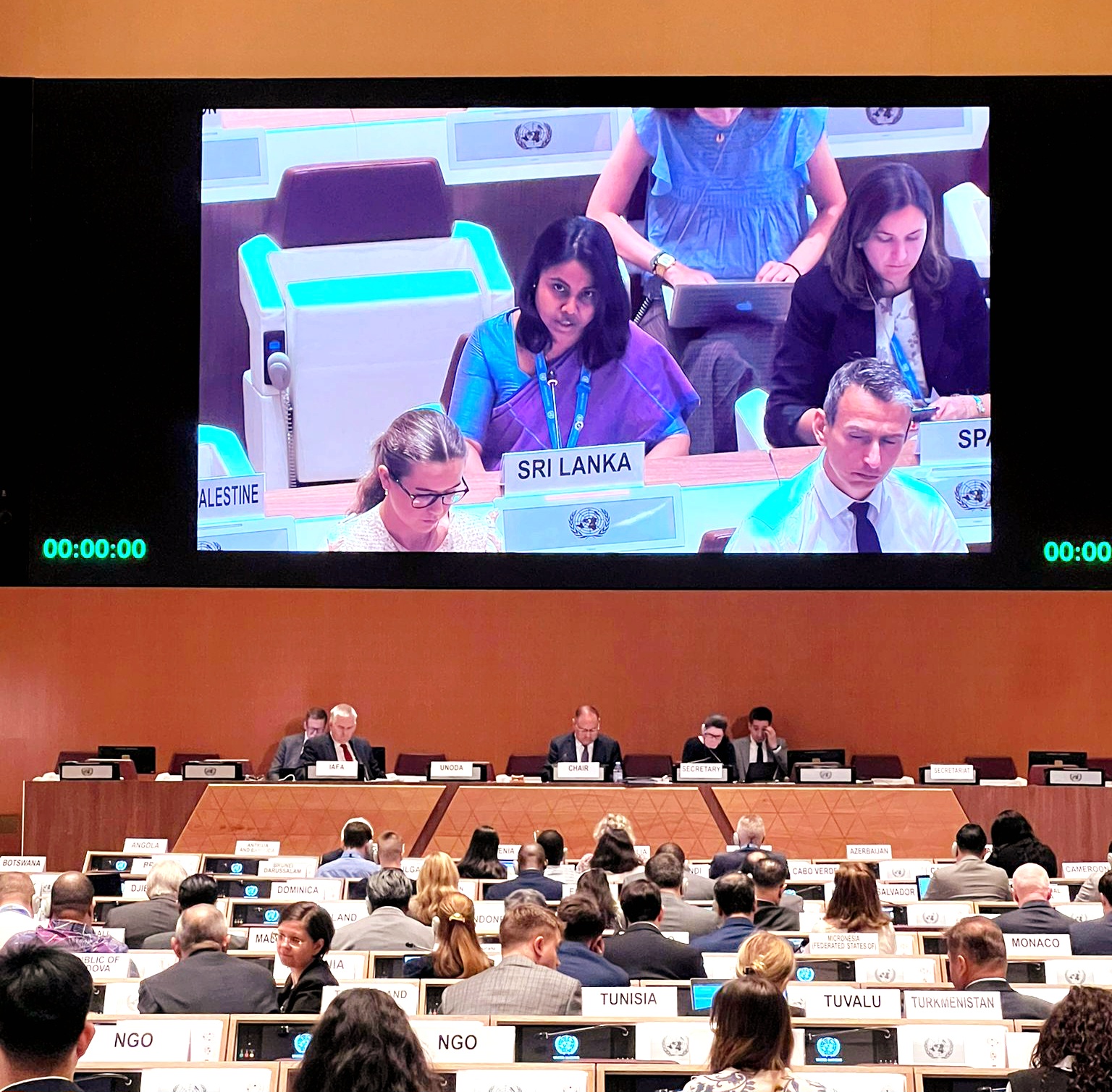
Statement by Sri Lanka at the 2nd Preparatory Committee for the 2026 Review Conference of the Parties to the Treaty on the Non-Proliferation of Nuclear Weapons, 22 July – 02 August 2024: UN in Geneva,
Item 4 - General debate on issues related to all aspects of the work of the Preparatory Committee
Mr. President,
Excellencies,
Distinguished delegates,
Let me begin with congratulating His Excellency Akan Rakhmetullin, Deputy Minister of Foreign Affairs of the Republic of Kazakhstan on assuming the Presidency of the 2nd Preparatory Committee. We trust your able leadership and ability to guide this forum towards a meaningful outcome and my delegation assures you of our fullest cooperation and support towards that endeavour.
The NPT is considered as the cornerstone of the disarmament and non-proliferation regime and it is a hard-won multilateral instrument to fight against nuclear weapons. Sri Lanka emphasizes the equal importance of the Treaty's three pillars: non-proliferation, disarmament, and the peaceful uses of nuclear energy in the implementation of the Treaty obligations.
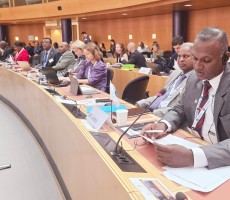
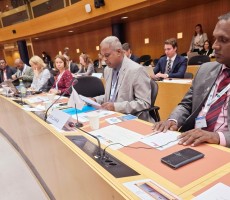
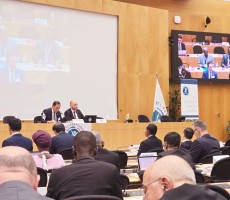
Mr. V. Premachanthiran, Deputy Director, National Mine Action Centre and Major M. T. A. P. L. Perera, Operation Officer of the Regional Mine Action Centre updated the progress of National Mine Action Completion Strategy and its commitments in comprehensive victim assistance programme at the Intersessional Meeting of the Anti-Personnel Mine Ban Convention (APMBC), on 18-20 June 2024 in Geneva.

On the invitation of the Austrian Federal Ministry for European and International Affairs, Foreign Secretary Aruni Wijewardane participated as a panellist at the “Humanity at the Crossroads: Autonomous Weapons Systems and the Challenge of Regulation” Conference held from 29-30 April 2024 at the Hofburg Palace in Vienna, Austria.
Organised by the Austrian Federal Ministry for European and International Affairs with a view to addressing concerns and challenges related to the use of Lethal Autonomous Weapons Systems (LAWS), the Conference was attended by more than 1000 participants from 144 countries. The attendees included high-level representations from several States, the United Nations, international and regional organisations, academia, think tanks, industry and civil society.
Speaking at its high-level panel discussion on “Geopolitics and machine politics: How to move forward on LAWS?” Foreign Secretary Wijewardane reaffirmed Sri Lanka’s long-standing policy on advocacy for conventional and WMD disarmament and application of humanitarian principles in warfare, including supporting a legally-binding instrument regulating and prohibiting the use of LAWS . The Panellists included Minister for Europe and Foreign Affairs of Albania Igli Hasani, Minister of Foreign Affairs and International Co-operation of the Republic of Sierra Leone Timothy Musa Kabba, and United Nations High Representative for Disarmament Affairs Izumi Nakamitsu. Sri Lanka was a main sponsor of the first ever UNGA resolution on LAWS adopted last year.
In her bilateral engagements which followed the Conference, Foreign Secretary Wijewardane held discussions with Foreign Policy Advisor to the Chancellor of Austria Peter Launsky and also with her Austrian counterpart Nikolaus Marschik, Secretary General of the Federal Ministry for European and International Affairs of Austria. The meetings took place at an important juncture as the two countries mark the 70th anniversary of diplomatic ties this year. Foreign Secretary Wijewardane apprised Secretary General Marschik of the recent progress made by Sri Lanka in the economic front and covered a wide range of bilateral matters including of investment, energy transition, migration & mobility, visa and tourism promotion.
The Foreign Secretary also met Chairman of the Vienna Philharmonic Orchestra Professor Daniel Froschauer and exchanged views on the proposed musical collaboration between the two countries.
The Foreign Secretary was accompanied by the Ambassador of Sri Lanka to Austria and officials of the Embassy and Permanent Mission of Sri Lanka in Vienna.
Embassy and Permanent Mission of Sri Lanka
Vienna
02 May 2024
- Statement by Her Excellency Himalee Arunatilaka, Ambassador and Permanent Representative of Sri Lanka to the United Nations in Geneva Thematic Debate of the Conference on Disarmament Agenda Item 2 – Prevention of nuclear war, including all related matters
- Statement by Sri Lanka at the First session of the 2024 CCW Group of Governmental Experts on emerging technologies in the area of Lethal Autonomous Weapons Systems (GGE on LAWS), 4-8 March 2024
- Address by Hon. Ali Sabry, Minister of Foreign Affairs of Sri Lanka 55th Regular Session of the Human Rights Council High-level segment

